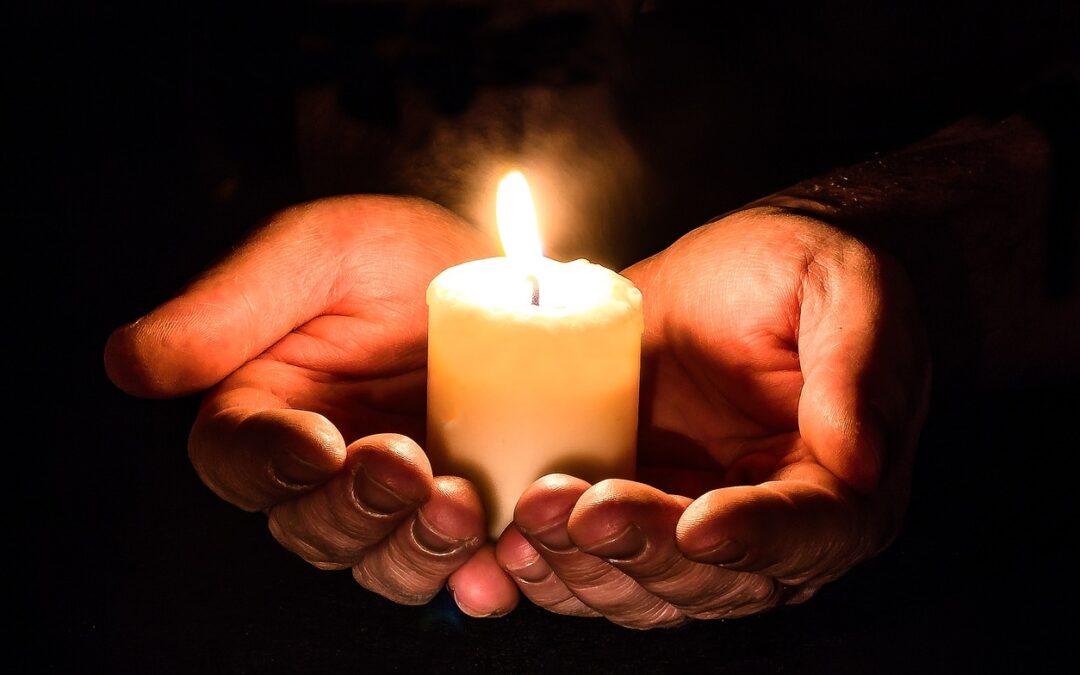One thing has come to my attention as I have just finished reading the first thirty chapters of Genesis: plural marriage. There is a lot of it in the Old Testament.
Before I go any further though, if you have happened upon this article and think that I am antagonistic towards the LDS church or anything along those lines, please do take that from this or any of my commentaries/articles. I grew up LDS and cherish my childhood and the many, many great values I gained through the LDS community and friends. I have no ill-will or hard feelings towards the LDS church or any of its members or leaders. I simply felt the Lord draw me towards His truth and towards Himself, and I felt the need to discuss the contents of this article. There are many actively in the LDS church who believe that plural marriage was never of God but of man. This shows that LDS members, like any other individuals, can think for themselves and can trust in God over anything presented by man. Again, I have no ill will towards the LDS faith and am grateful for the values I was brought up with.
As stated, I grew up LDS. The LDS church teaches that there is only to be one man and one woman, however, it was not always so. Indeed, the church teaches that God commanded the early leaders of the LDS church to practice polygamy. Indeed, even on the current LDS website it states:
Latter-day Saints believe that monogamy—the marriage of one man and one woman—is the Lord’s standing law of marriage. In biblical times, the Lord commanded some of His people to practice plural marriage—the marriage of one man and more than one woman. Some early members of The Church of Jesus Christ of Latter-day Saints also received and obeyed this commandment given through God’s prophets. https://www.lds.org/topics/plural-marriage-in-kirtland-and-nauvoo?lang=eng
Under the “biblical times” argument, it cites to Genesis 16 as a “commandment” from the Lord.
However, in the Bible, polygamy seems to have always been the result of a lack of faith, deception, lust, or direct disobedience.
In the LDS canon there is the “Doctrine and Covenants,” which are largely comprised of revelations to the founder of the LDS church, Joseph Smith. In Section 132, the section ordaining plural marriage, they use their own scripture to justify the statement that there was a “commandment” to Abraham to take multiple wives. D&C 132:34: “God commanded Abraham, and Sarah gave Hagar to Abraham to wife. And why did she do it? Because this was the law; and from Hagar sprang many people. This, therefore, was fulfilling, among other things, the promises.”
Verse 35 continues, “Was Abraham, therefore, under condemnation? Verily I say unto you, Nay; for I, the Lord, commanded it.”
Let’s look at this again. According to this section, God commanded Sarah to give Abraham her handmaid and he was, in turn, commanded to sleep with her.
Let’s look at the actual biblical account:
Genesis 16: God had promised him children as numerous as the stars in the heavens, but reaching an old age, his faith was wavering. He was old, his wife was old. Her faith was wavering faster than his it appears. Verse 1: “Now Sarai, Abram’s wife, had borne him no children. But she had an Egyptian maidservant named Hager; so she said to Abram,” The Lord has keep me from having children. Go, sleep with my maidservant; perhaps I can build a family through her.”
This isn’t, exactly, a command of the Lord; in fact, it’s more a lack of faith that God isn’t going to fulfill his promise to Abraham. In fact, because of his apparent lack of faith, in Chapter 17 the Lord reminds Abraham that he will bless him with a child and will do so through Sarah.
Before I get too far, I want to go back to D&C 132 and start at the beginning. The first verse reads as follows.
“Verily, thus saith the Lord unto you my servant Joseph, that inasmuch as you have inquired of my hand to know and understand wherein I, the Lord, justified my servants Abraham, Isaac, and Jacob, as also Moses, David and Solomon, my servants, as touching the principle and doctrine of their having many wives and concubines—”
While there are a lot of things to discuss in this section, right now I want to focus on this first verse. Allegedly, God told Joseph that he “justified” Abraham, Isaac, Jacob, Moses, David, and Solomon regarding their multiple wives. The first biblical problem with this verse is that, although Abraham, Jacob, David, Solomon, and probably Moses had multiple wives, Isaac never did. Thus, God is mistaken, or the biblical account is incorrect and he did take more wives, or this section was made up by a man.
There are entire essays about Isaac and his monogamy. Unlike his father and his son Jacob, Isaac remained entirely faithful to his one wife and is thus a “Christ-figure” of the Old Testament. Unlike both Abraham and Jacob who slept with the handmaids of their wives once their wives began having difficulty bearing children, Isaac prayed to the Lord when his wife was barren and Rebekah became pregnant. Genesis 25:21. Unlike Abraham and Jacob who had their names changed by the Lord later in life, Isaac, like Jesus, was named by the Lord before he was born. Genesis 17:19. Like Christ, Isaac was to be sacrificed by his father. Thus, the very first verse of this section is likely factually incorrect.
This is not the only mistake God allegedly made here. It mentions David here, and if we skip down to verse 39, supposedly the Lord says “David’s wives and concubines were given unto him of me, by the hand of Nathan, my servant, and others of the prophets who had the keys of this power; and in none of these things did he sin against me save in the case of Uriah.” First, this is not biblical. God may have allowed it, but there is nothing to support that Nathan served as some sort of pimp for David. (Sorry for the sarcasm) Second, this actually contradicts the very words from the LDS church’s own scripture, the Book of Mormon. In Jacob 2:24, the Lord says “Behold, David and Solomon truly had many wives and concubines, which thing was abominable before me, saith the Lord.”
So… which Lord is speaking and when?
Regardless, if we review the Biblical accounts of polygamy, they were never endorsed by the Lord. Were they sins? That’s a bit of a grey area. The Lord clearly allowed polygamy. However, there is a big difference between allowing multiple wives and commanding one to take multiple wives. There are no commandments in the Bible for multiple wives, only against. Deuteronomy 17:17, here the Lord gives instructions to the people once they enter into the promised land an appoint a king to rule over them. He lays down several rules, including that the king must not be a foreigner and also that “[h]e must not take many wives, or his heart will be led astray. He must not accumulate large amounts of silver and gold.” We saw this happen to both David and Solomon. Solomon was led away from the Lord due to his significant harem and the pagan practices his concubines brought with him. David’s biggest downfall was taking another wife, one that he should never have taken.
This is opposite of what we find in the LDS scriptures though. So let’s continue, having seen a probable error in verse one. Verse two continues: “Behold, and lo, I am the Lord thy God, and will answer the as touching this matter.”
In other words, God is going to answer Joseph’s inquiry into the justification of polygamy.
Verse three continues “prepare thy heart to receive and obey the instructions which I am about to give unto you; for all those who have this law revealed under them must obey the same.”
Again, we have a lot of significant preparatory language. In essence, be prepared for the commandment I am going to give to you.
Verse four begins the real meat of the chapter, “I reveal unto you a new and everlasting covenant; and if you abide not in that covenant, then you are damned; for no one can reject this covenant and be permitted to enter into my glory.” It then continues for about 10 versus with lots of extraneous language mingled with biblical phrases, before we come to verse 15. In verse 15 it reads, “if a man marry him a wife in the world, and he marry her not by me nor by my word, and he covenant with her so long as he is in the world and she with him, their covenant and marriage are not of force when they are dead, and when they are out of the world; therefore, they are not bound by any law when they are out of the world.”
Verse 16 essentially says that for those who are married in the world and not by the Lord, they become ministering servants “to minister for those who are worthy of a far more, and an exceeding, and an eternal weight of glory.” In other words, those who follow this new law as part of this “new and everlasting covenant” receive a much higher glory and are served by those who did not marry in this manner.
Verses 17 through 18 reiterate the same things, and verse 19 essentially says that those who do marry according to God’s word, so long as they do not shed innocent blood, they will become gods with all powers, dominions, priesthoods etc. The next few verses continue on in the same language mingled with phrases from the Bible, before it goes on to explain the promises that Abraham received from the Lord.
In verse 30, “Abraham received promises concerning his seed, and the fruit of his loins–from whose loins ye are… Which were to continue so long as they were in the world.” Verse 31 through 32 reads as follows: “This promise is yours also, because ye are of Abraham, and the promise was made to Abraham; and by this law is the continuation of the works of my father, wherein he glorifies himself. Go ye, therefore, and do the works of Abraham (presumably polygamy); enter ye into my law and you shall be saved.”
Let’s take a step back and think this through.
This section begins with the discussion of a “new and everlasting covenant” that was to be revealed to Joseph Smith. However, there is nothing “new” about polygamy, and that is where the next few verses go. After commanding Joseph to “do the works of Abraham” we then move on to verse 34 where God allegedly commanded Abraham and Sarah to give Hagar to be his wife. Verse 35 reads as follows: “Was Abraham, therefore, under condemnation? Verily I say unto you, Nay; for I, the Lord, commanded it.” Verse 36 reads “Abraham was commanded to offer his son Isaac; nevertheless, it was written: Thou shalt not kill. Abraham, however, did not refuse, and it was accounted unto him for righteousness.”
Verse 37 reads: “Abraham received concubines and they bore him children; and it was accounted unto him for righteousness, because they were given to him and he abode in my law; as Isaac and also Jacob did none other things than that which they were commanded; because they did none other things than that which they were commanded, they have entered into their exaltation according to the promises, and sit upon the throne’s, and are not angels but are gods.”
Let’s recap.
There is this “new and everlasting covenant” that is essentially polygamy, and is frankly really, really old – Abraham was doing it long before Christ. Others were doing it long before him. If your in disagreement that plural marriage was really the same thing as celestial marriage, let’s read just one of many quotes from Brigham Young about this celestial marriage:
But the first wife will say, “It is hard, for I have lived with my husband twenty years, or thirty, and have raised a family of children for him, and it is a great trial to me for him to have more women;” then I say it is time that you gave him up to other women who will bear children. If my wife had borne me all the children that she ever would bare, the celestial law would teach me to take young women that would have children.“ Journal of Discourses, 4:53, Brigham Young, September 21, 1856.
In other words, according to the D&C, what God is telling Joseph in this passage is that an essential requirement for “exaltation” is that he be married by God, presumably to multiple women. And he needs to continue in “the law,” which sounds a lot like OT legalism.
There is an interesting comparison here, pointing out that although the law said “thou shalt not kill,” Abraham was commanded to offer up his son as a sacrifice, which was contrary to that law, and this was righteousness. In other words, they are using the example of Abraham and Isaac to essentially say that although you are not supposed to commit adultery, not only can you, but you are supposed to when the Lord tells you to do it, and it will be righteousness for you. This is a new and everlasting covenant.
There are a lot of potential problems in these verses.
First, again the Lord forgets that Isaac didn’t commit polygamy. Although he doesn’t necessary say this in these later passages, it’s implied.
Second, there is a bizarre comparison between Abraham being told to sacrifice his only son and Joseph being told to “do the works of Abraham” by marrying lots of women. The story of Abraham and Isaac is a beautiful parallel to the Father sacrificing his son, Jesus Christ, for the sins of the world. There was significant sacrifice by both the Father and the Son and there was no worldly pleasure to be gained, only eternal salvation for those who accept the Son. It seems a little far-fetched that God, the one who sacrificed his own Son, would compare his own beautiful symbolism to “commanding” a man to marry lots of women.
Third, the works of Abraham were never accredited to him as righteousness, it was his faith in trusting the Lord, that the Lord would bless him with offspring. Paul makes this clear in Galatians 3:3-8: “Did you receive the Spirit by the works of the law, or by believing what you heard? Are you so foolish? After beginning by means of the Spirit, are you now trying to finish by means of the flesh? … So again I ask, does God give you his Spirit and work miracles among you by the works of the law, or by your believing what you heard? So also Abraham ‘believed God, and it was credited to him as righteousness.’ Understand, then, that those who have faith are children of Abraham. Scripture foresaw that God would justify the Gentiles by faith … So those who rely on faith are blessed along with Abraham, the man of faith.”
The “works” of Abraham were never credited as righteousness, especially his sleeping with his handmaids. This is entirely un-biblical and contrary to scripture. Further, ironically, the only later time that the Sarah/Hagar event is mentioned in the Bible is to compare the old law with the actual true new covenant: Jesus Christ. Galatians 4:21-23 reads, “Tell me, you who want to be under the law, are you not aware of what the law says? For it is written that Abraham had two sons, one by the slave woman and the other by the free woman. His son by the slave woman was born according to the flesh, but his son by the free woman was born as the result of a divine promise.”
Clearly, this specifically contradicts what is found in D&C. The God in the D&C tells Joseph Smith that this giving of Hagar to Abraham as a wife, and his bearing of children, was part of the “new and everlasting covenant.” Paul says it was of the flesh, the “divine promise” was through Sarah, not Hagar.
Continuing, verse 24 through 26 reads, “These things are being taken figuratively: The women represent two covenants. One covenant is from Mount Sinai and bears children who are to be slaves: This is Hagar. Now Hagar stands for Mount Sinai in Arabia and corresponds to the present city of Jerusalem, because she is in slavery with her children. But the Jerusalem that is above is free, and she is our mother…Now you, brothers and sisters, like Isaac, are children of promise.”
Again, Hagar and the birth of Ishmael specifically represents the old law, children who are born as slaves without a savior. There is no “new and everlasting covenant” here. Section 132 seems to attempt to reiterate the law and ignore our savior, and not only that, but implement a law that is not good and is inconsistent with the law originally given by God.
Let’s finish with verses 29 through 31. Verse 29 reads, “At that time the son born according to the flesh (Ishmael) persecuted the son born by the power of the Spirit (Isaac).” Again, this seems to affirm that there is nothing spiritual, nothing holy, about Sarah giving Hagar to Abraham; it is “according to the flesh.”
Finally, “But what does Scripture say? ‘Get rid of the slave woman and her son, for the slave woman’s son will never share in the inheritance with the free woman’s son.’ Therefore, brothers and sisters, we are not children of the slave woman, but of the free woman.”
Indeed, if we want to seek the Lord, if we want salvation, we can never find it under any law, we can only find it through Christ.
So what’s the point of all of this? There are many who believe this entire section was a drafted by Brigham Young or his cohorts and subsequently labelled as a revelation of Joseph Smith to justify the polygamy that they were already practicing. There is legitimate support for this. See Joseph Smith’s monogamy. However, I don’t believe a study of LDS history is necessary; just taking the section itself, identifying it’s inconsistencies and biblical contradictions, along with using the brain God gave you, is enough to throw this out entirely.








Recent Comments